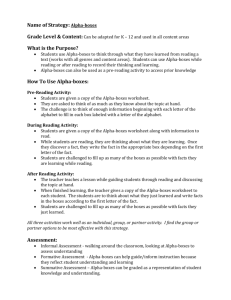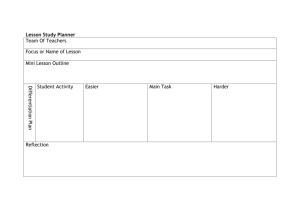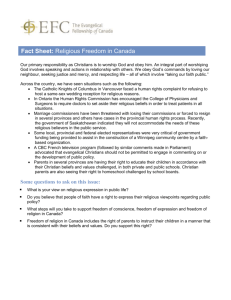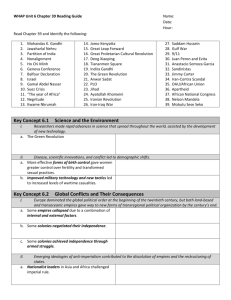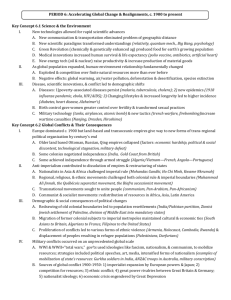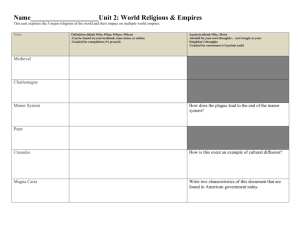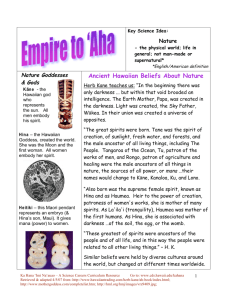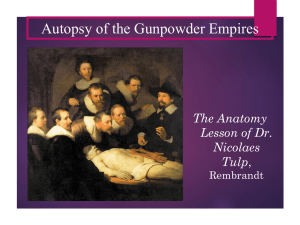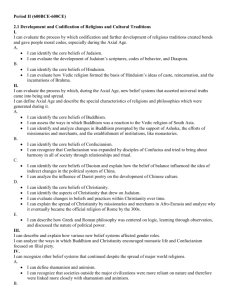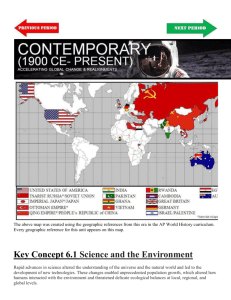1920s and 1930s - Oxford University Press
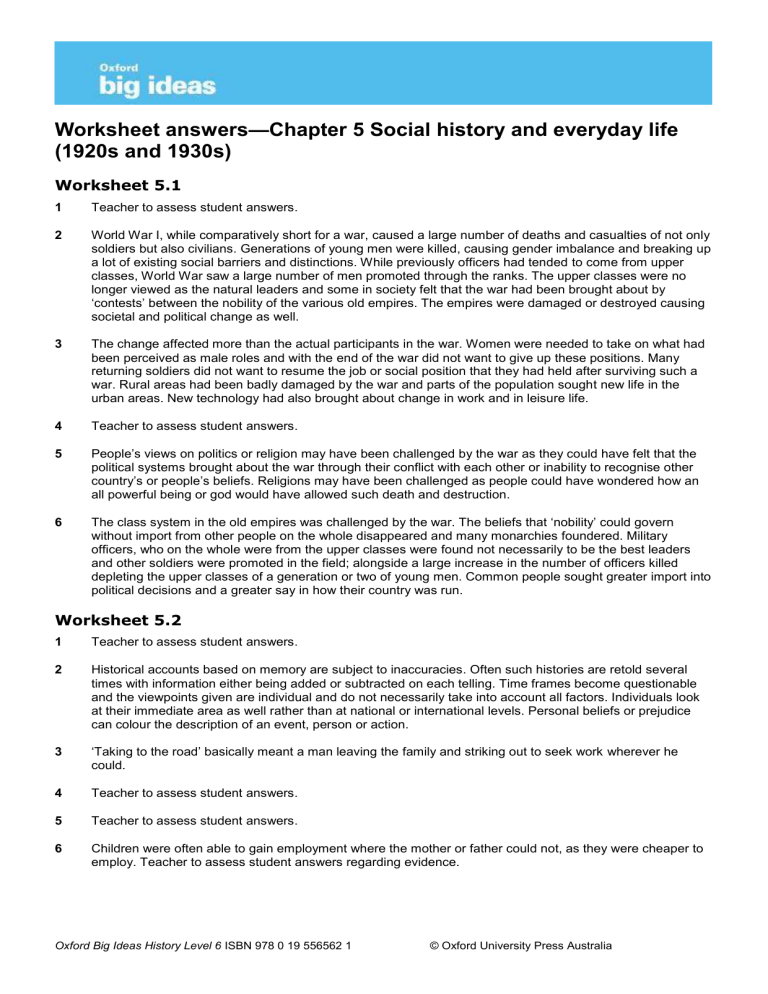
Worksheet answers
—Chapter 5 Social history and everyday life
(1920s and 1930s)
Worksheet 5.1
1 Teacher to assess student answers.
2
3
World War I, while comparatively short for a war, caused a large number of deaths and casualties of not only soldiers but also civilians. Generations of young men were killed, causing gender imbalance and breaking up a lot of existing social barriers and distinctions. While previously officers had tended to come from upper classes, World War saw a large number of men promoted through the ranks. The upper classes were no longer viewed as the natural leaders and some in society felt that the war had been brought about by
‘contests’ between the nobility of the various old empires. The empires were damaged or destroyed causing societal and political change as well.
The change affected more than the actual participants in the war. Women were needed to take on what had been perceived as male roles and with the end of the war did not want to give up these positions. Many returning soldiers did not want to resume the job or social position that they had held after surviving such a war. Rural areas had been badly damaged by the war and parts of the population sought new life in the urban areas. New technology had also brought about change in work and in leisure life.
4
5
6
4
5
Teacher to assess student answers.
People’s views on politics or religion may have been challenged by the war as they could have felt that the political systems brought about the war through their conflict with each other or inability to recognise other country’s or people’s beliefs. Religions may have been challenged as people could have wondered how an all powerful being or god would have allowed such death and destruction.
6 The class system in the old empires was challenged by the war. The beliefs that ‘nobility’ could govern without import from other people on the whole disappeared and many monarchies foundered. Military officers, who on the whole were from the upper classes were found not necessarily to be the best leaders and other soldiers were promoted in the field; alongside a large increase in the number of officers killed depleting the upper classes of a generation or two of young men. Common people sought greater import into political decisions and a greater say in how their country was run.
Worksheet 5.2
1 Teacher to assess student answers.
2
3
Historical accounts based on memory are subject to inaccuracies. Often such histories are retold several times with information either being added or subtracted on each telling. Time frames become questionable and the viewpoints given are individual and do not necessarily take into account all factors. Individuals look at their immediate area as well rather than at national or international levels. Personal beliefs or prejudice can colour the description of an event, person or action.
‘Taking to the road’ basically meant a man leaving the family and striking out to seek work wherever he could.
Teacher to assess student answers.
Teacher to assess student answers.
Children were often able to gain employment where the mother or father could not, as they were cheaper to employ. Teacher to assess student answers regarding evidence.
Oxford Big Ideas History Level 6 ISBN 978 0 19 556562 1 © Oxford University Press Australia

